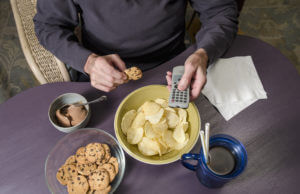Staying on the sober path is an emotional journey, so it’s not too surprising that many people turn to food to help them cope. This is known as emotional eating, comfort eating, or feeding your feelings. While using food as a source of comfort is OK once in a while, it can become dangerous if these feelings-fueled bouts become too frequent. Not only does comfort eating hurt your overall health (causing nutritional deficiencies, obesity, low self-esteem, etc.), but it can also jeopardize your recovery. This behavior often means that you’re running away from or masking your emotions, which can spell danger during recovery.
Take heart: It’s never too late to curb comfort eating. Start with these steps.
Get in touch with hunger cues. Before digging into that bag of chips or box of cookies, ask yourself whether you’re experiencing physical or emotional hunger. Keep in mind that emotional cravings come on suddenly and physical hunger builds gradually and is accompanied by the following signs:
• Growling stomach or pangs
• Feeling of emptiness in the stomach
• Fatigue, low energy
• Headache
• Irritability
• Trouble concentrating
Distract yourself. If it’s not genuine hunger you’re feeling, then your best bet is to try to stop yourself from thinking about eating. One of these healthy distractions may help:
• Go for a walk or bike ride
• Call a friend or family member—preferably in a room other than the kitchen
• Read a book or magazine
• Try a new hobby, like painting or knitting
• Do a puzzle or play a board game with a family member
• Pop in a fitness or yoga DVD
• Paint your nails or toenails
Wash away temptation. It’s easy to mistake food cravings for thirst, so before you reach for food, hydrate with a glass of water.
Stock up on healthy comfort foods. We all experience emotional eating now and again, so the goal is to prepare yourself by having on hand foods that can fill your emotional craving without being nutritionally disastrous. Think creamy, warm, filling fare like oatmeal, tomato soup, whole-wheat waffles, and baked sweet potatoes.
Living Sober, Living Healthy
Our Philadelphia sober living residence encourages and incorporates activities and attainable daily goals that reflect a strategy toward a sustainable recovery and personal wellness. To learn more, call (866) 247-3307.









